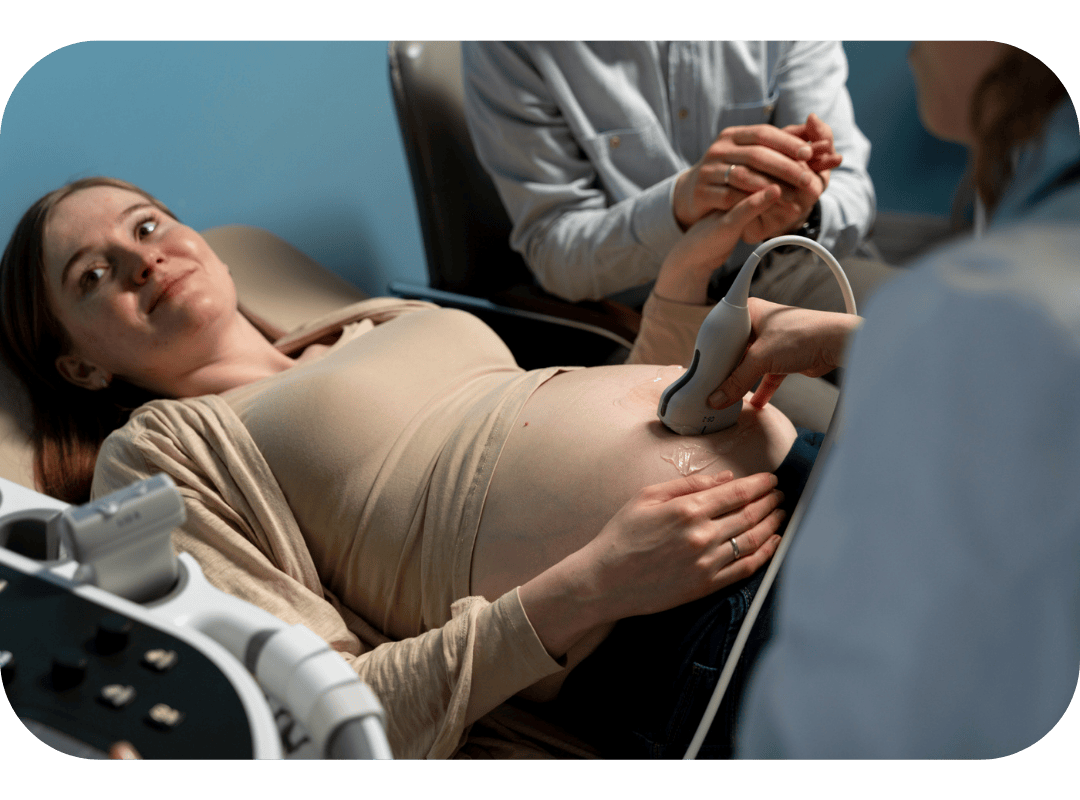What you are looking for?
Obstetrics
PROMOTING FEMALE HEALTH AT EVERY STAGE
We specialize in obstetrics care.
At Dr. Mahalakshmi Clinic, we offer expert care in the field of Obstetrics, ensuring the well-being of both mother and child throughout the pregnancy journey. Our team of highly skilled professionals is dedicated to providing personalized, compassionate care for every stage of pregnancy, from pre-conception counseling to post-delivery care.At every phase of your women's health journey, our dedicated team at NariHealth is here to provide guidance, answer your queries, and facilitate connections with experienced healthcare professionals. Kindly share your contact information, and our welcoming reception team will reach out to assist you promptly.
We specialize in obstetrics care.


PROMOTING FEMALE HEALTH AT EVERY STAGE
At Dr. Mahalakshmi Clinic, we offer expert care in the field of Obstetrics, ensuring the well-being of both mother and child throughout the pregnancy journey. Our team of highly skilled professionals is dedicated to providing personalized, compassionate care for every stage of pregnancy, from pre-conception counseling to post-delivery care.At every phase of your women's health journey, our dedicated team at NariHealth is here to provide guidance, answer your queries, and facilitate connections with experienced healthcare professionals. Kindly share your contact information, and our welcoming reception team will reach out to assist you promptly.
Obstetrics: Treatment Overview & Care
Obstetrics treatment focuses on the care of pregnant women, childbirth, and postnatal care to ensure the health and safety of both mother and baby.
- Prenatal Care (During Pregnancy)
- Regular Checkups – Monitor fetal growth, maternal health, and detect any complications.
- Ultrasound & Screening Tests – Track baby’s development and check for genetic conditions.
- Prenatal Vitamins & Nutrition – Folic acid, iron, and essential nutrients for a healthy pregnancy.
- Gestational Diabetes & Blood Pressure Monitoring – Prevent complications like preeclampsia.
- Labor & Delivery Care
- Normal Vaginal Delivery (NVD) – Natural childbirth with medical support.
- Cesarean Section (C-Section) – Surgical delivery if vaginal birth is risky.
- Pain Management Options – Epidural anesthesia, breathing techniques, etc.
- High-Risk Pregnancy Care – Special monitoring for complications like twin pregnancy, diabetes, or hypertension.
- Postnatal (After Delivery) Care
- Mother’s Recovery – Healing from delivery, postpartum depression support.
- Newborn Care – Vaccination, feeding support (breastfeeding guidance).
- Family Planning & Birth Control – Options for contraception after childbirth.
- Specialized Obstetrics Treatments
- Ectopic Pregnancy Management – Surgery or medication for pregnancies outside the uterus.
- Miscarriage Treatment – Medical support and D&C (Dilation & Curettage) if needed.
- Fetal Surgery – In rare cases, surgery is performed while the baby is still in the womb.
Frequently Asked Questions
What area of Obstetrics you treat?
Regular check-ups and screenings throughout pregnancy to monitor the health of both mother and baby, including ultrasounds, blood tests, and other diagnostic procedures.
Education on healthy pregnancy practices, nutrition, exercise, and managing common pregnancy symptoms.
Close monitoring and interventions to manage complications and ensure the safety of both mother and baby.
What are the risks and side effects of treatment?
Common in the first trimester, morning sickness involves nausea and vomiting. It is generally mild but can cause dehydration and discomfort in some cases. While prenatal vitamins are essential for supporting pregnancy, some women may experience nausea, constipation, or upset stomach from iron supplements.
what is the recovery time?
Most women recover within 6-8 weeks after a vaginal delivery.
Some women may experience vaginal soreness, perineal tears, or stitches, which typically heal within a few weeks. Pelvic floor muscles also require time to regain strength.
How will I feel after treatment?
Childbirth is physically exhausting, and many women experience significant tiredness after delivery, particularly during the first few days as they adjust to caring for a newborn.
Fluctuating hormones can lead to physical symptoms such as sweating, hot flashes, and breast tenderness as the body adjusts to life after pregnancy.
